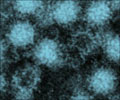Washington, DC - Kefir, one of the world's oldest health drinks, did little to prevent diarrhea in young children being treated with antibiotics, say researchers at Georgetown
Kefir, one of the world's oldest "health" drinks, did little to prevent diarrhea in young children being treated with antibiotics, say researchers at Georgetown University Medical Center (GUMC), who tested the drink in a unique and rigorous double-blind clinical trial.
While the study results, published in the August issue of Archives of Pediatrics and Adolescent Medicine, are negative, investigators say there are intriguing hints that the drink, which is rich in probiotics – live bacteria - appeared to help the children in the study who were the least healthy."We were initially interested in this study because many physicians are already recommending yogurts, kefirs, and probiotics supplements to prevent diarrhea associated with use of antibiotics," says the study's lead author, Daniel J. Merenstein, MD, director of research in the Department of Family Medicine at GUMC.
A number of studies have shown that probiotics can help prevent and treat diarrhea, even in people using antibiotics but this has often been shown in very different settings than is typical in the United States, Merenstein says. Children are especially susceptible to this problem, he says - about 20-30 percent of kids using antibiotics will develop diarrhea from the antibiotic, and this often results in them stopping the antibiotic or additional doctor visits.
Many of these previous studies, however, were not "double-blinded" – that is, compared with a placebo drink that resembled kefir."This study didn't prove the benefit of kefir in these children– not all probiotics work the same - but the results also suggest that kefir may work best in younger, sicker children," Merenstein says. "More studies with this particular group of children are warranted."
Kefir, which originated in Europe and Asia and has been used for hundreds of years, is a milk drink. The kefir Merenstein studied was fermented by ten probiotics. It is believed to keep the stomach and immune system strong and stable.
Previous studies lacked the rigor needed to be conclusive, so Merenstein designed a clinical trial in which 125 children, ages 1-5, being treated for antibiotics, were given either a kefir drink to use with their antibiotic tablet each day for ten days or a kefir drink in which the probiotics were previously destroyed by heat (placebo). Neither the study coordinators, the children, nor their parents knew which drink was given to which participant until the study ended.
Advertisement
Researchers found that 18 percent of children in the kefir group developed diarrhea compared to 22 percent in the placebo group – which is not a statistically significant difference. However, in the children whose health was poorer at enrollment, 23 percent developed diarrhea in the kefir group, compared with 31 percent in the placebo group.
Advertisement
Source-Eurekalert
SRM













